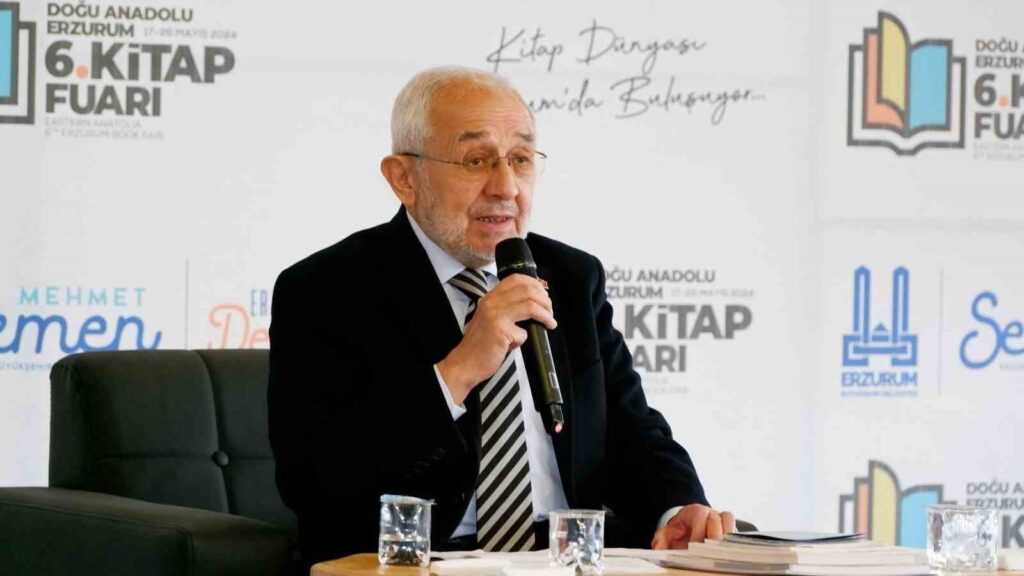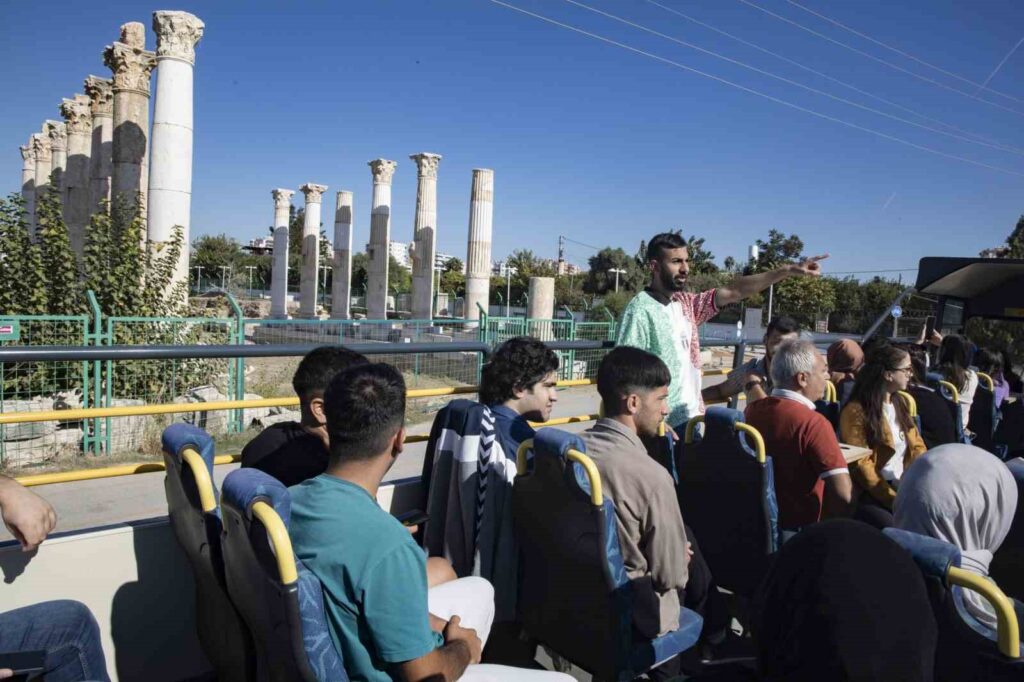Erdem: ‘There is no difference between protecting the language and protecting the homeland’
Ekrem Erdem, the President of the Turkish Language and Literature Association (TDED), gave a conference titled ‘Our Language is Our Identity’ at the 6th Eastern Anatolia Erzurum Book Fair. Drawing attention to the misuse of language and the invasion of foreign words, Erdem stated, ‘Protecting the language is akin to protecting the homeland …

The President of the Turkish Language and Literature Association (TDED), Ekrem Erdem, gave a conference titled ‘Our Language is Our Identity’ at the 6th Eastern Anatolia Erzurum Book Fair. Drawing attention to the misuse of language and the invasion of foreign words, Erdem stated, ‘There is no difference between protecting the language and protecting the homeland.’ During the meaningful opening of the 6th Eastern Anatolia Erzurum Book Fair at the Erzurum Recep Tayyip Erdogan Fair Center Foyer, TDED President Ekrem Erdem delivered a conference titled ‘Our Language is Our Identity,’ emphasizing that Turkish is among the world’s most powerful languages. He said, ‘Appreciating the value of our Turkish, preserving our language, and discovering its beauties are our main duties as members of this nation.’ Erdem pointed out that Turkish, with nearly 250 million speakers in approximately 16 million square kilometers, is one of the world’s largest languages. He expressed concerns about the increasing invasion of foreign words, especially with the rise of the internet, and highlighted the threats posed to our language by rapid developments in science and technology, careless language used by press and media organizations, the habit of using foreign words brought by commercial life, and the fascination with education in foreign languages. Erdem emphasized the importance of not viewing the problems faced by our language solely as a linguistic issue, stating that the real issue at hand is not the language itself but our national identity. He stressed that nations that lose their language and culture by entering the cultural sphere of another nation have disappeared from history. Erdem continued by stating that language is the reason for the existence of states, and societies achieve national identity by having a common language; they can also preserve their national entities with their languages. Erdem underlined that language defense is homeland defense and emphasized the necessity of protecting our language to be a prominent country globally. He mentioned that strong civilizations can be built with strong languages and reaching a high level of culture depends on having a high-level language. Erdem called for a ‘National Culture and Language Policy’ that encompasses every aspect of life to ensure that Turkish can maintain its presence as an independent and strong language, liberated from the dominance of foreign languages by the 100th anniversary of the Republic. Erdem pointed out that the most intense areas of foreignization and corruption in language are seen in signage pollution. He highlighted that today our streets are dominated by foreign words, and there are hardly any Turkish signs left on the streets of our cities. Erdem noted that signage pollution, which is the reason for the establishment of the association, has always been our priority. Erdem discussed the efforts of the Turkish Language and Literature Association in this regard, summarizing the constructive steps taken regarding signage: ‘With our determined follow-up, on March 19, 2018, the ‘Signposts’ and ‘Rules for Signs Used in Institutions and Organizations’ standard was accepted in the Technical Committee of the Turkish Standards Institute (TSE). This standard introduces rules for random and irregular signposts and signs used by institutions and organizations, aiming to prevent visual pollution caused by hanging signs on the outer surfaces of buildings, in front of businesses, streets, and avenues. With this regulation, it is stipulated that signposts must be in Turkish, and the English text should be at least 25% of the size of the Turkish text. I believe that the confusion in signposts will come to an end with this standard. Therefore, I invite everyone to be sensitive about this issue.’







